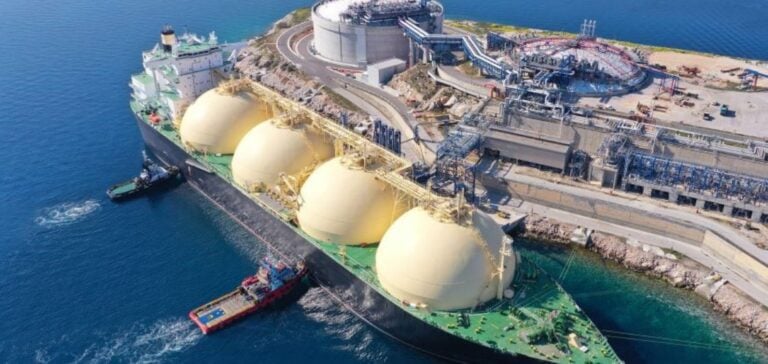Spot prices for liquefied natural gas (LNG) in Europe are struggling to match those of long-term oil-indexed contracts.
This situation is exacerbated by the current weakness in oil prices, coupled with concerns over LNG supply as winter approaches.
According to recent data from S&P Global Commodity Insights, the North-West European LNG price for October stands at $11.813/MMBtu, down 4% on the week and 7% on the month.
Long-term LNG contracts, often indexed to oil, incorporate a “slope” that fluctuates between 11% and 20%, depending on market conditions.
Currently, this slope is between 12% and 13.5% relative to the Brent price.
With Brent Dated valued at $72.125/barrel, indexed LNG prices would be between $8.655 and $9.737/MMBtu, well below current spot market levels.
Spot and contract markets
The LNG spot market shows a premium over oil-indexed contracts, reaching $2.08/MMBtu with a slope of 13.5%, and $3.16/MMBtu with a slope of 12%.
This premium reflects the sharpest difference since the end of 2023.
Faced with this differential, European buyers are turning more to long-term contracts, which are less exposed to spot market fluctuations.
In 2024, around 57% of European LNG imports were made via long-term contracts, compared with 41% via spot transactions.
This trend contrasts with previous years, when import volumes under long-term contracts were slightly higher.
This dynamic reflects a more cautious supply strategy, favoring more stable and predictable prices in a context of growing uncertainty.
Influence of oil market fluctuations
The price outlook for LNG remains influenced by oil market volatility and supply risks.
With potential interruptions to gas flows via Ukraine and maintenance in Norway, Algeria and Libya, prices could come under pressure, fuelled by speculative factors.
Buyers are cautious, exploiting the flexibility of their contracts to avoid unpredictable fluctuations in the spot market.
Forecasts of oil prices falling to $60-70/barrel by 2025 could further strengthen the competitiveness of oil-indexed LNG contracts.
Lower crude prices would directly influence the cost of indexed LNG, making long-term contracts even more attractive.
Outlook for winter and beyond
The LNG market is gearing up for a winter marked by strong competition for available cargoes, particularly from Asia and other developing regions.
However, analysts believe that the increase in LNG infrastructure from 2025 onwards could stabilize the market and ease some of the current tensions.
The balance between supply and demand, coupled with a possible stabilization of oil prices, will play a key role in shaping the LNG market in the medium term.






















